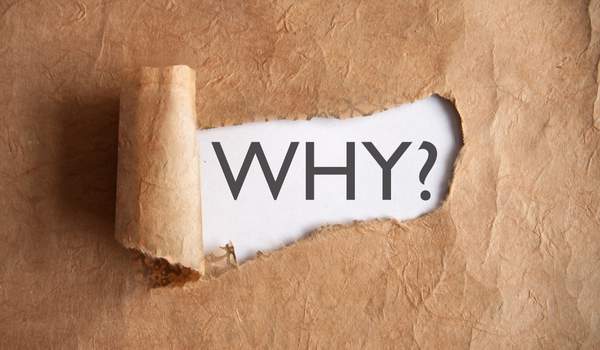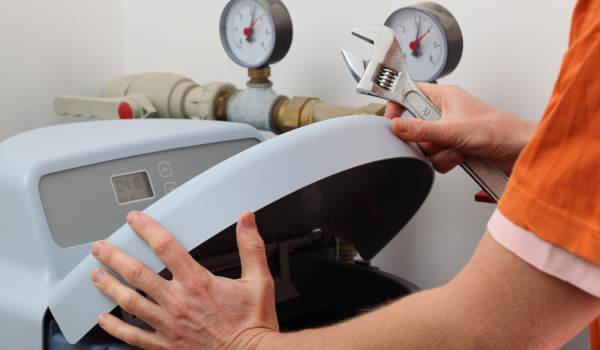If you’re dealing with stubborn stains, rough laundry, or dry, itchy skin after showers, hard water might be the quiet culprit behind it all.
The good news? Installing a water softener isn’t just about protecting your plumbing — it’s a simple upgrade that improves your daily life in ways you’ll notice right away.
Here’s a quick look at what a softener can really do. 🧠
🧠 Quick Takeaways:
- ✅ Soft Water Feels Better — Softer skin, smoother hair, and no more soap scum.
- ✅ Protects Appliances — Stops mineral buildup that wrecks dishwashers, heaters, and pipes.
- ✅ Saves You Money — Less detergent, fewer repairs, lower energy bills over time.
- ✅ Tastier Water for Cooking and Drinking — Removes the metallic taste some hard water can leave behind.
- ✅ Good for Your Home’s Value — A quality water system is a selling point for future buyers.
🔢 Understanding Water Hardness

Hard water isn’t harmful to drink — but the minerals in it can be a real pain for your home (and your skin).
Here’s the quick breakdown:
| Hard Water | Soft Water | |
|---|---|---|
| 💚 | High in minerals like calcium and magnesium | Minerals are removed or neutralized |
| 💚 | Leaves behind limescale buildup | Keeps pipes, fixtures, and appliances cleaner |
| 💚 | Can make skin dry and hair dull | Leaves skin softer and hair more manageable |
💬 Good to Know: Hard water is more common than you think — about 85% of homes in the U.S. have some level of it (USGS).
🛠️ How Water Softeners Actually Work

Hard water isn’t dangerous — but it is stubborn.
The real headache comes from the minerals it carries, mostly calcium and magnesium. These guys are harmless to drink but rough on plumbing, appliances, skin, and hair.
Here’s the quick breakdown:
- 🧲 Water softeners use an ion exchange process.
- 🌟 Tiny resin beads inside the softener trap hard minerals.
- 🔄 In exchange, they release sodium or potassium ions into the water.
- 💧 Result: Soft water flows out — cleaner, smoother, and way easier on everything it touches.
💬 Good to Know: There’s a difference between salt-based softeners and salt-free conditioners. True softeners physically remove minerals. Salt-free systems mostly prevent scale buildup but don’t actually soften the water.
🧪 Salt-Based vs. Salt-Free Water Systems

| 🔍 Feature | 🧂 Salt-Based Softener | 🌱 Salt-Free Conditioner |
|---|---|---|
| How it Works | Removes minerals using ion exchange | Crystallizes minerals to prevent scaling |
| Mineral Removal | ✅ Yes (actual softening) | 🚫 No (still “hard”) |
| Best For | Homes with severe hard water | Mild hardness, eco-conscious homes |
| Maintenance | Regular salt refills | Minimal upkeep |
| Water Feel | Soft, slippery | Slightly slick but minerals still present |
💬 Good to Know: Whether you need full mineral removal or just scale prevention, matching your system to your water quality is key — and it’ll save you money (and headaches) down the road.
🧼 Why Use a Water Softener? (Benefits You’ll Notice Fast)

Installing a water softener isn’t just about preventing scale buildup — it’s about making everyday life a little easier (and a lot more comfortable). Here’s what you’ll actually notice:
- ✅ Cleaner Dishes and Glassware — No more cloudy spots or soap residue left behind.
- ✅ Longer-Lasting Appliances — Washing machines, dishwashers, water heaters — they’ll all last longer with less mineral buildup inside.
- ✅ Softer Skin and Hair — Say goodbye to the dry, itchy feeling hard water leaves behind after a shower.
- ✅ Lower Energy Bills — Water heaters run way more efficiently without scale gunking up the heating elements.
- ✅ Less Soap and Detergent Waste — Soft water lets soaps lather better, meaning you’ll use less and spend less.
- ✅ Fewer Plumbing Headaches — Pipes stay clearer longer, avoiding clogs and expensive service calls.
💬 Good to Know: Even small amounts of hardness minerals can cause hidden damage over time — softening your water is like giving your whole home an upgrade from the inside out.
🛠️ How To Choose the Right Water Softener

Choosing a water softener isn’t one-size-fits-all. The best system for you depends on your home’s size, your water hardness level, and even your lifestyle habits.
Here’s a quick guide to help:
| Factor | Why It Matters |
|---|---|
| 🏡 Household Size | More people = more water use; larger softener needed for bigger families. |
| 💧 Water Hardness | Higher mineral levels mean you’ll need a system with greater capacity. |
| 🔄 Regeneration Type | Demand-initiated softeners are more efficient and save salt/water over time. |
| 🔌 Power Access | Most systems need a nearby outlet — check location before buying. |
| 💸 Budget & Maintenance | Account for upfront cost, salt refills, and possible long-term maintenance. |
💬 Pro Tip: Already have low water pressure? Pick a high-flow softener model to avoid future headaches — see our favorite water softeners here to find the best match for your home.
🔧 Installation & Maintenance

Getting your softener installed right from the start makes life easier down the road. And a little maintenance? It keeps everything running like clockwork.
Here’s what you need to know:
| Step | Details |
|---|---|
| 📍 Pick the Right Location | Choose a spot close to your main water line with easy access for future service. |
| 🚰 Shut Off Water Supply | Turn off your main water line before starting any installation work. |
| 🔗 Connect Pipes Correctly | Match inlet and outlet lines carefully — some systems need extra bypass valves. |
| 🛠️ Regular Resin Care | Salt-based systems need periodic resin bed flushes and refills to stay efficient. |
| 🔄 Regeneration Cycles | Keep an eye on salt levels and run manual regenerations if your system recommends it. |
💬 Pro Tip: Not a fan of DIY installs? No shame! Calling a licensed plumber can save you time, frustration, and expensive mistakes.
💸 Long-Term Costs and Savings

Investing in a water softener isn’t just about comfort — it can seriously boost your wallet over time. Here’s how the math shakes out:
- 🛠️ Lower Repair Bills — Fewer plumbing issues and longer appliance life means big savings down the road.
- 🧴 Less Soap and Detergent — You’ll use up to 50% less cleaning products because soft water lathers faster.
- 🔥 Energy Efficiency — Appliances like water heaters run more efficiently without mineral buildup, saving you on utilities.
- 🏠 Boosted Home Value — A well-maintained softener system can make your home more attractive to buyers.
- 💧 Better Everyday Quality — Beyond money, soft water feels better, tastes better, and protects everything it touches.
💬 Good to Know: While the upfront cost can feel steep, the lifetime savings (and fewer headaches) usually make a water softener one of the smartest home upgrades you can make.
🧼 Final Thoughts
Hard water might not seem like a big deal at first, but over time, it chips away at your home’s plumbing, your appliances — and even your wallet.
The good news?
Installing a water softener isn’t complicated, and the benefits are instant:
- ✅ Cleaner dishes, softer laundry, and smoother skin.
- ✅ Lower energy bills and fewer repair headaches.
- ✅ Longer life for every appliance in your house.
💬 Bottom line: Investing in a quality water softener — whether salt-based or salt-free — protects your home, saves you money, and makes everyday life a whole lot better.
Once you experience soft water, you’ll never want to go back. 💧✨
 87 people found this helpful. Was this guide helpful to you?
87 people found this helpful. Was this guide helpful to you? 

